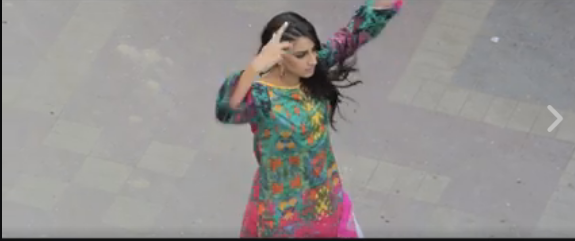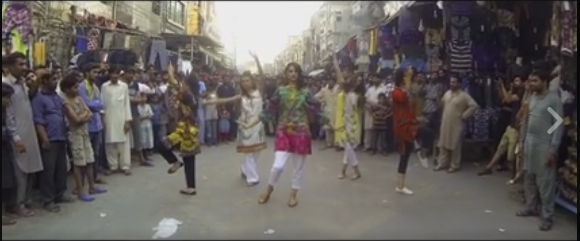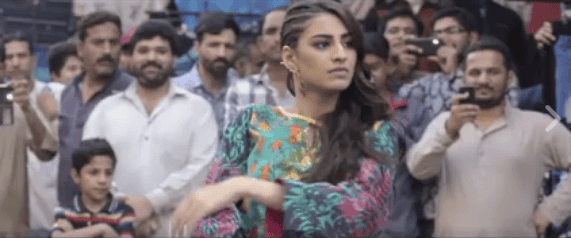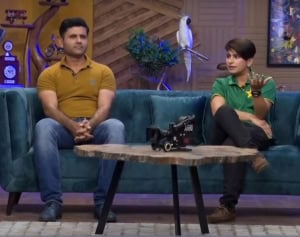In a country where you’ve been told to ‘not step out from the house too late because of the circumstances’, the right of a Pakistani women to express herself freely is mediocre. It is a generalisation claiming that societal pressures have been ‘chaining down’ women for a very long time, but I wouldn’t deem it completely incorrect.
Say, for example, women usually cover themselves up in marketplaces, because of certain men who casually stroll around in the streets and would pass remarks or tease them.
That is precisely what still happens, if I may very sadly add, unless you have a man or two in tow.
Anarkali Bazaar, a historic place in the city of Lahore which is also one of the oldest surviving markets in South Asia, has over thousands of people; correction, men, who roam around on a daily basis in search of garments, food, jewellery and so much more.
You ‘cringe’ at the mere mention of Anarkali if you’re a woman, because knowing that so many men (who lack the decency to keep their remarks and eyes to themselves when you walk by) are there to scare you if you ever roam around without men.
These women, one of whom I know a little through a casual meet-up once or twice, were a part of a fairly ‘bold’ campaign, in the words of most of the ‘social commentators’ as I call them (those who sit behind their screens and comment on things they don’t approve of) and made a DYOT clothing brand’s campaign viral through their outburst in the streets of old Anarkali.
Related – DYOT removes video of all-girl flashmob in Old Anarkali
Here’s the video for those of you who still haven’t seen the rebellion:
What’s perhaps most thrilling to me as a woman who has seen this discrimination on a daily basis and the way men react to the way a woman dresses up even if she’s politely keeping to herself and minding her own business, is the fact that these group of young girls were brave enough to step out of their usual ‘bubble’ of keeping safe.
Rehmat, very boldly and confidently, stands in the middle of Anarkali, with men around her: lurking, eyeing her whole body from top to bottom and ‘enjoying the show’, does what she has always loved to do best: express herself through her dance.

Rehmat had uploaded this video on her Facebook yesterday with the following status:
“I learned that deep inside we were once happy people. When we were born, naked. Before we got wrapped around with an endless cloth of conflicting morals and values, before we were told to act a certain way.Trying to put in effort in normalizing freedom of expression and putting an end to pouring thoughts at this hour.”
Moving along, the video received ALOT, and I mean ALOT of negativity and discrimination, once again, and took me by surprise when I saw women commenting on the video more than the men.
Women commented things like ‘unclassy, tacky, and a bunch of attention-seekers’ to the girls who focused on nothing more but bringing about a social change. They called them modernists, people who didn’t know what the struggles of poor girls their age are.
After receiving such strong criticism, Sana Tauseef, a friend of Rehmat’s, commented:
“Feminism is not only about the grave issues that women face or what you might consider ‘real’ societal problems or about the issues faced by a certain class; Every single woman has a different struggle and it’s unfair to tell her that her version of empowerment and her efforts to break the shackles holding her feet in one place are pointless. The whole purpose of a movement like feminism is equality, so please open up your minds and give these ‘elitist’ ‘NCA’ girls a chance, for their battles might not fall in your category of ‘real’ battles but they mean the world to them.”
In a society where we still have millions of miles to go till a woman is accepted even walking on the road wearing jeans and politely minding her own business, this comes as a delightful sight. In my opinion, this campaign was inspiring, thought-provoking, shackle-breaking and a rebellion of its own.
Why do we have to think of rebellion or women empowerment as something only for the minorities or those who are experiencing physical pain? Truth is, mental torture has a lot of affect on an individual’s personality too.

I found this video to be a speaker for my regrets, my passion, and a breaker of all those unfair social norms that people and negativity have embarked onto our minds and hearts.
Having said that, Girls At Dhabas, a group of feminists who speak for women rights in Pakistan, had the following take on the video:
“90%+ women report sexual violence in a private space, by someone they know. Not on the streets. Yet, this video portrays men from lower-class backgrounds as the problem, successfully diverting attention from the real issue: policing women from interacting with lower class men. Think about it: how many times have you been told not to loiter or hang around in a public space because of the ‘kind of men’ there? Most of us are taught to fear, or be suspicious of, the ordinary male hawker / shopkeeper / rickshaw wala. Yet, interacting with these same men has personally taught us that this mistrust and suspicion is misplaced.”
What do you guys think? Let us know if this campaign did something for you.














